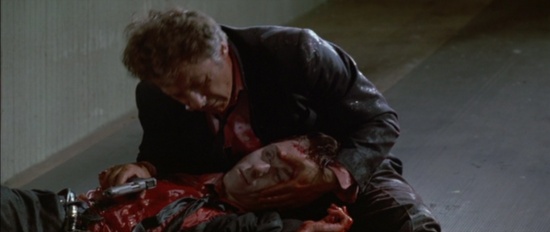Star Trek: Nemesis (Stuart Baird, 2002)
There has been a long-standing tradition that the even-numbered Trek films are good and the odd numbered ones mediocre or bad. Star Trek: Nemesis – the tenth Trek film, and almost certainly the last involving the full “Next Generation” crew – mixes enough good, bad and indifferent elements that it would have been held up as vindication of that theory whether it was been odd or even numbered. The villain of the piece is Shinzon, who has masterminded a political coup in the Romulan empire by the empire’s underclass, the Remans. Story logic would dictate that Shinzon would be Reman himself, but Nemesis is founded on twin contrivances: firstly, that Shinzon is a clone of the captain of the starship Enterprise, Jean-Luc Picard, and secondly, that Shinzon has somehow come into possession of a prototype for the android Data. These plot points are, on close examination, patently absurd, but they serve their purpose of providing a personal link between the villain and the hero of the piece.


